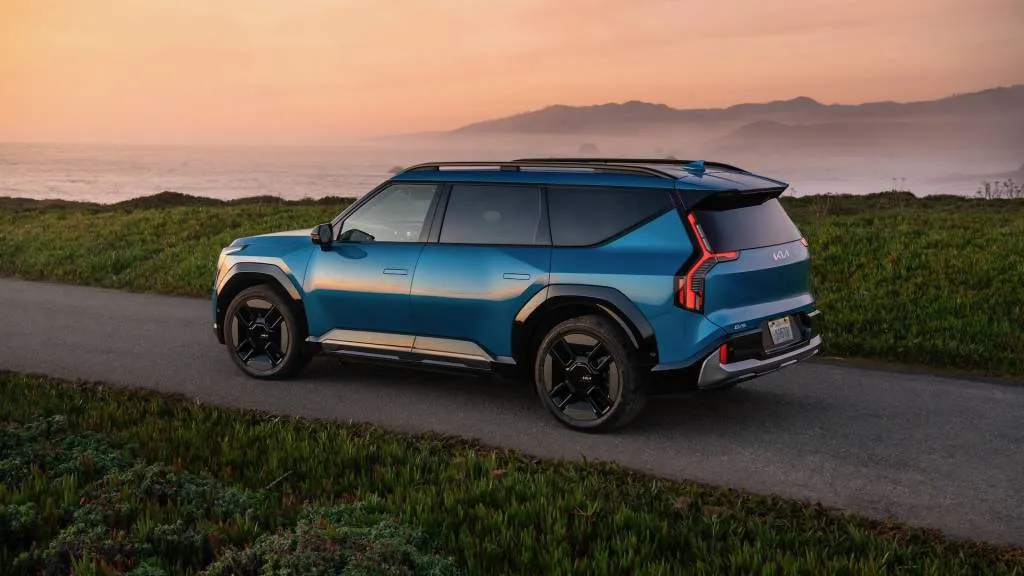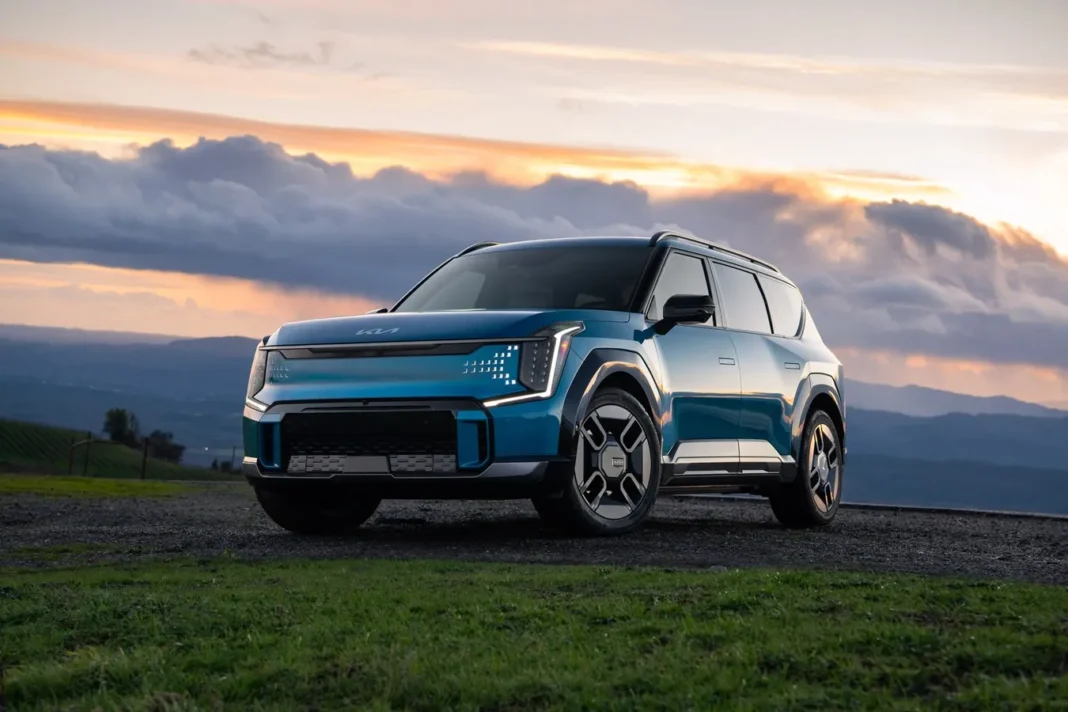- U.S. production of the Kia EV9 is being cut back
- 2025 EV9s assembled in the U.S. qualify for $3,750 of the federal EV tax credit
- The 2025 Kia EV9 costs $56,225 without the credit
Kia is cutting back U.S. production of the EV9 electric SUV, but 2025 models that are assembled here will qualify for a $3,750 federal EV tax credit, reports The Korea Herald.
The credit, half the maximum amount, is due to the fact that supplier SK On still manufactures batteries for the EV9 in China, which is labeled a foreign entity of concern by the U.S. government. Going forward, vehicles with battery materials sourced from any country labeled a foreign entity of concern are disqualified from the full credit amount under rules enacted as part of the Inflation Reduction Act (IRA).

2025 Kia EV9
“The EV9 is ineligible to benefit from the full IRA benefits due to the battery issue, along with other factors, including price,” a Kia official told The Korea Herald. The IRA rules also include an $80,000 price cap for electric SUVs, but many versions of the EV9 come in underneath that. The base Light Standard Range starts at $56,225, with destination.
Kia began producing EV9s at its West Point, Georgia, plant in June, but most U.S.-market vehicles are still sourced from South Korea, according to the report. EV9s are also being built at parent Hyundai’s Metaplant, also in Georgia, but not in volume. The report said just 21 were made at that facility in the third quarter, with just one sold in the U.S.

2025 Kia EV9
SK On has worked with Hyundai and Kia to meet tax-credit sourcing rules, a process that’s about to be stepped up with construction of a new battery cell plant in Georgia in close proximity to both the Hyundai and Kia plants. It’s projected to have an annual capacity of 35 gwh, sufficient for 500,000 EVs, according to the report. Hyundai is also planning a joint venture battery plant with LG Energy Solution in Georgia.
Debuting as a 2024 model, and earning Green Car Reports’ Best Car To Buy award, the EV9 has sold briskly, with nearly 18,000 sales through October. Kia now seems more concerned with satisfying that demand than specifically manufacturing vehicles in the U.S. to satisfy tax credit rules, which will likely prevent the EV9 for qualifying for the full amount for some time. The tax credit may also disappear under the incoming Trump administration, which has reportedly made nixing it a priority.

